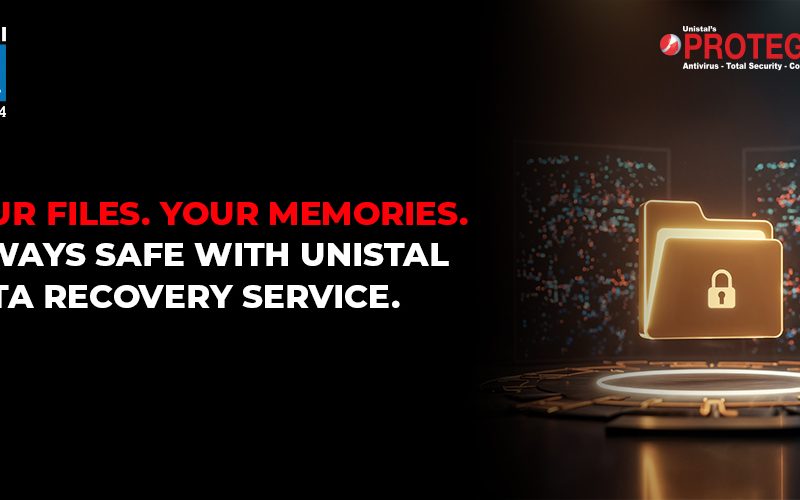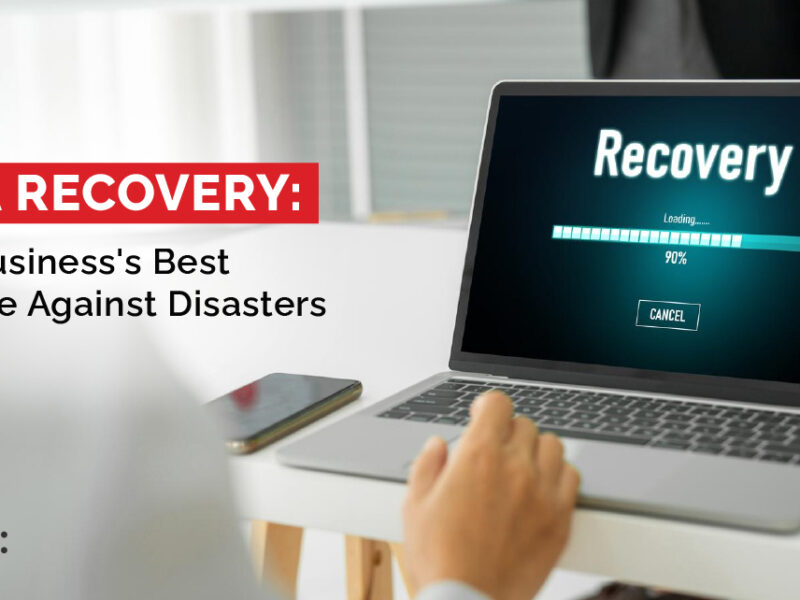
Why Data Recovery Should Be a Part of Your Cybersecurity Strategy
It begins with a small error. A corrupted file. An unresponsive drive. An urgent folder, gone without a trace. For businesses and individuals alike, the sudden disappearance of data can trigger panic, confusion, and serious consequences. But in many cases, the real crisis isn’t just the loss of data—it’s the realisation that there was no recovery plan in place.
In India, where digital transformation is rapidly reshaping every sector—from banking and retail to education and healthcare—the reliance on data is greater than ever. Yet, while cybersecurity spending is increasing, data recovery remains an afterthought for many. This oversight is proving costly.
Cybercrime is Rising, and Data is the Target
India is one of the fastest-growing digital economies in the world, but that growth comes with growing pains—particularly when it comes to cybersecurity. According to the National Crime Records Bureau, India recorded a 24.5% rise in financial cybercrime in 2024, with over ₹2,000 crore in losses. In cities like Bhopal, cyber frauds alone caused losses of more than ₹104 crore in just two years, while recovery of stolen money or data remained below 2%.
But the financial loss is only part of the story. Businesses hit by ransomware or data breaches often suffer irreversible damage to reputation, customer trust, and regulatory compliance. And when the data goes missing—whether due to a cyberattack, human error, or hardware failure—companies are left scrambling to pick up the pieces.
The Flawed Assumption: “It Won’t Happen to Us”
This mindset—common across small businesses and even mid-sized enterprises—fuels a dangerous complacency. Many assume that their antivirus software and firewall are enough to keep threats at bay. But here’s the uncomfortable truth: No cybersecurity strategy is foolproof. Attackers are constantly evolving, and new vulnerabilities are discovered almost every week.
Cybersecurity experts agree that today’s approach needs to shift from “just prevention” to “prevention + recovery.” Because eventually, some form of breach or data loss is inevitable. When it happens, the ability to recover data quickly and securely can determine whether a business survives—or shuts down.
Why Data Recovery Must Be a Core Component of Cybersecurity
Cybersecurity, at its core, is about protecting confidentiality, integrity, and availability of data. But when a cyber incident strikes—say, a ransomware encrypts your files or a phishing attack compromises your cloud storage—only having a defense system in place won’t restore your data. You need a data recovery mechanism that works alongside your security measures.
A well-integrated data recovery strategy allows organisations to:
- Bounce back faster after a data breach or cyberattack.
- Avoid paying ransoms to recover encrypted data.
- Ensure compliance with data protection regulations like India’s upcoming Digital Personal Data Protection (DPDP) Act.
- Minimise operational downtime that can cripple productivity and revenue.
Moreover, recovery isn’t just about IT systems—it’s about continuity. Imagine a hospital losing patient records during a malware attack or a law firm having its case files wiped out. Without proper recovery tools and protocols, these scenarios can turn into disasters within hours.
The Indian SMB Problem: No Backup, No Plan
According to a survey by NASSCOM, over 60% of Indian SMEs have no formal data backup or recovery plan. Many rely on basic antivirus software and outdated manual backup processes—often using external hard drives or USBs. These methods are prone to failure and offer no real protection against sophisticated threats like ransomware or file corruption.
And yet, these businesses are often the most vulnerable. They lack dedicated IT teams, don’t conduct regular cybersecurity audits, and often aren’t even aware of data recovery solutions available in the market. When disaster strikes, they either attempt DIY recovery (which often worsens the damage) or they accept the loss and move on—if they can afford to.
Modern Cybersecurity Demands a “Recover-Ready” Approach
In 2025, a robust cybersecurity framework must cover more than just firewalls and endpoint protection. It should include:
- Regular, automated backups (local + cloud)
- Real-time monitoring of storage devices for signs of corruption or unauthorized access
- Disaster recovery drills to test recovery time and data integrity
- Professional data recovery services on standby for critical emergencies
This is where services like Unistal’s Data Recovery Services step in—acting as a safety net when all else fails.
Unistal Data Recovery Services: Your Last Line of Defense
For over 30 years, Unistal has been a trusted name in data protection, offering state-of-the-art data recovery solutions tailored for Indian businesses and individuals. Whether the cause is a ransomware attack, hardware failure, accidental deletion, or logical corruption—Unistal helps retrieve data swiftly and securely.
Key Features of Unistal’s Data Recovery Services:
- Support for all storage types: HDDs, SSDs, RAID, NAS, USB drives, SD cards, and more.
- Clean-room facilities: For physically damaged drives, ensuring safe and contamination-free recovery.
- 24/7 emergency service: Fast turnaround when every minute counts.
- Data privacy assurance: Strict protocols to protect client data during and after recovery.
- Free consultation & diagnosis: No hidden costs for evaluation, making it affordable for SMEs.
Whether you’re a corporate client or an individual, Unistal’s recovery experts combine experience with innovation to bring your lost data back from the brink—efficiently and ethically.
Conclusion: Build Cyber Resilience, Not Just Cyber Defense
Cybersecurity is no longer just about keeping the bad guys out. It’s about preparing for when they get in—and making sure you’re not left helpless when they do. The real measure of cyber resilience is not just in how well you prevent attacks but in how quickly and completely you recover from them.
In a country like India, where digital adoption is accelerating but awareness around data recovery remains low, it’s time to bring this conversation to the forefront. Whether you’re a tech-savvy startup in Bengaluru or a growing retailer in Lucknow, integrating data recovery into your cybersecurity strategy isn’t optional—it’s essential.




